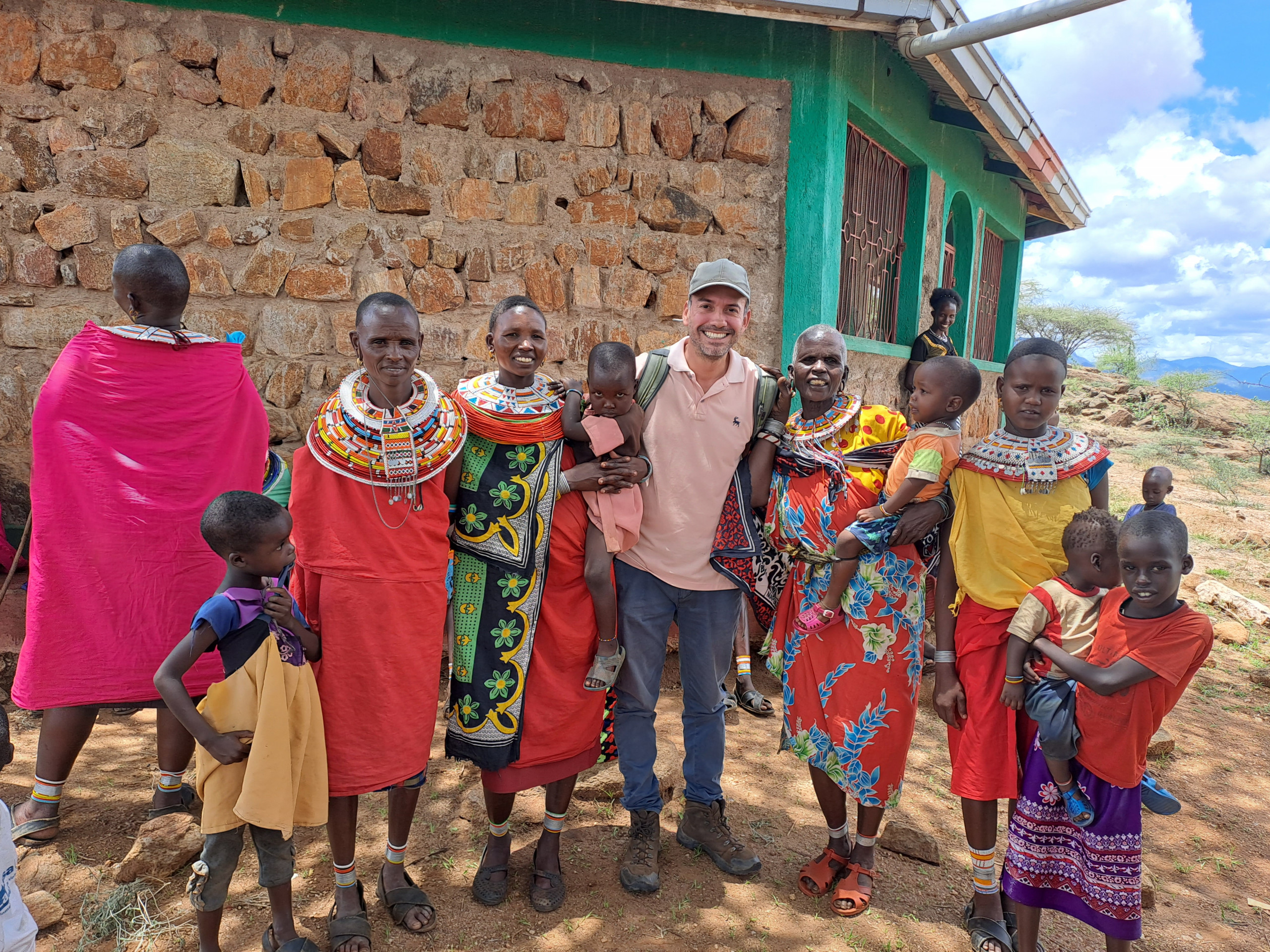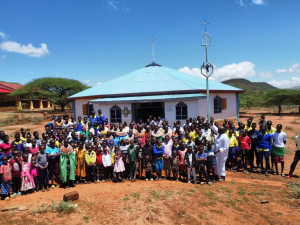Kenya: Changing Your Community, With $20 A Week, and A Lot of Faith
In Northern Kenya, the Catholic Church faces unique challenges. Geographic isolation, cultural differences, and limited resources make the missionary work both essential and difficult.

Imagine if your parish was running, in addition to catechetical activities, seven-night schools for shepherd children, offering educational support to public school students, teaching adults to read and write, promoting agroecological gardens to combat food scarcity and organizing various activities fomenting environmental awareness, peace, and community coexistence.
Now imagine doing all of that in the arid semi-deserts of Northern Kenya, where in the 30 communities served by one priest and six catechists, the Sunday collection is $20.
This is precisely the reality of Father Jimmy Alexander Gil Ocampo, a Colombian priest associated with the Missionaries of Yarumal. With over seven years of missionary service in Kenya, Father Gil’s journey intertwines faith, cultural understanding, and community development.
“Hello everyone, I am Jimmy Alexander Gil Ocampo, a priest from the Archdiocese of Medellín, Colombia,” Father Gil begins, his voice reflecting a deep commitment to his mission. “Serving in Kenya for more than seven years, I work with the Samburu tribe, a semi-nomadic, pastoral, patriarchal, and polygamous community with enduring traditions.”
The Samburu tribe, known for their traditional ways, presents unique challenges and opportunities for Father Gil and his colleagues, who took over the mission from the Consolata missionaries 13 years ago. “Our parish, in Lodungokwe, now 30 years old, continues the legacy of missionary presence here,” he explains.
Father Gil’s mission is diverse and multifaceted. “We focus on evangelization projects, combining prayer and God’s spirit with social activities to foster community relations and voluntary participation,” he says. This includes pastoral support to 11 small settlements and 30 communities, with the aid of six catechists and programs for children, youths, women, and men.
Education and development, big concerns
Education and development projects are also central to Father Gil’s mission. “We run seven night schools for shepherd children, offer educational reinforcement, and have adult literacy classes, especially for women, to enable them to read the Bible,” he elaborates. Other initiatives include agro-ecological gardens, environmental and peace activities, sports events in local schools, empowerment workshops for women, and support for vulnerable children and youths in their education.
Despite these efforts, or perhaps because of them, financial challenges remain. “Our Sunday collection averages only $20, making it difficult to fund essential activities like vehicle maintenance, catechist support, and missionaries’ sustenance,” Father Gil admits. The desire to build a chapel, improve parish infrastructure, and drill a water well underscores the pressing needs.
The parish commemorates the World Mission Sunday, to be held this year on October 20, by joining the Universal Church in prayer and fundraising for missions. “It’s an opportunity to engage everyone, including children, in supporting missionary work,” he adds.
Reflecting on his journey, Father Gil notes, “My experience here has renewed my faith, urging me towards a more dynamic pastoral approach, as advocated by Pope Francis.” He sees his role as bringing abundant life to the people, touching material, spiritual, and social aspects.
“The change in the lives of those we serve is gradual. Education is key, and over time, communities become more receptive to the Gospel,” he observes, highlighting the slow but sure transformation in community attitudes towards faith and the Church.
Father Gil’s story raises a compelling question: “Can you imagine doing all that in your parish with a Sunday collection of $20?” It’s a rhetorical query that underscores the impact of thousands of missionary priests, religious and catechists, and the dire need for support from organizations like The Pontifical Mission Societies.
In Northern Kenya, the Catholic Church faces unique challenges. Geographic isolation, cultural differences, and limited resources make the missionary work both essential and difficult. Despite these challenges, missionaries like Father Gil remain committed to their calling, bringing faith, education, and development to remote communities thanks to the spiritual and material support of The Pontifical Mission Societies family.

